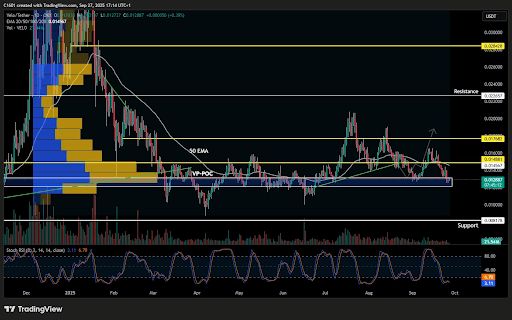- Arizona caps daily crypto ATM transactions at $2,000 for new users and $10,500 for existing users.
- Operators must refund victims reporting fraud within 30 days of the transaction.
- Arizonans lost $177 million to crypto scams last year, prompting stronger state protections.
Arizona will begin enforcing new rules this week aimed at curbing scams linked to cryptocurrency ATMs. The law comes as state officials report rising cases of fraud carried out through the machines, with millions lost in recent years.
Rising Cases of Crypto ATM Fraud
Crypto kiosks, commonly found in stores and shopping malls, allow users to transform cash into Bitcoin and other tokens. Scammers have exploited these machines by posing as government officials, romantic partners, or trusted contacts. Victims are convinced to deposit large sums, only to find their money is gone.
Reports show that Arizona has faced a sharp increase in such scams over the past year. Attorney General Kris Mayes previously addressed the issue in a letter to the Yavapai County Sheriff’s Office. She noted that criminals often targeted elderly residents, costing them savings built over a lifetime.
In her statement, Mayes described the impact as devastating. “Last year, Arizonans lost an astounding $177 million in their hard-earned savings to cryptocurrency scammers,” she said.
New Regulation Sets Limits and Refunds
The new law, called the Cryptocurrency Kiosk License Fraud Prevention Act, proposes tougher limits and protections for users. Transactions for new customers will now be capped at $2,000 per day, while existing users face a $10,500 daily limit.
Operators must also provide clear receipts for every transaction and display warnings on machines. These warnings are modeled after those used near retail gift cards, which became a common scam target in recent years.
Importantly, the law requires operators to refund victims if fraud is reported within 30 days of the transaction. This measure shifts responsibility onto kiosk providers, creating additional safeguards for residents.
Legislative Support for Consumer Protection
The law was sponsored by Representative David Marshall, R-Snowflake, who described cases where residents drove long distances to use machines and later discovered losses. Marshall stressed that constituents were left vulnerable to fraudulent schemes without clear protections.
Attorney General Mayes supported the new rules, describing them as commonsense protections for residents. However, she added that further efforts are needed to protect seniors, who remain disproportionately targeted.
Arizona’s action comes amid broader concerns across the United States about cryptocurrency-related fraud. Federal data showed Americans lost $5.6 billion to crypto scams in 2023, with many victims being older adults. Officials say the new Arizona law represents a first step toward stronger consumer protection. With rising scams, authorities plan to continue working with businesses to ensure warnings are visible and losses reduced.




